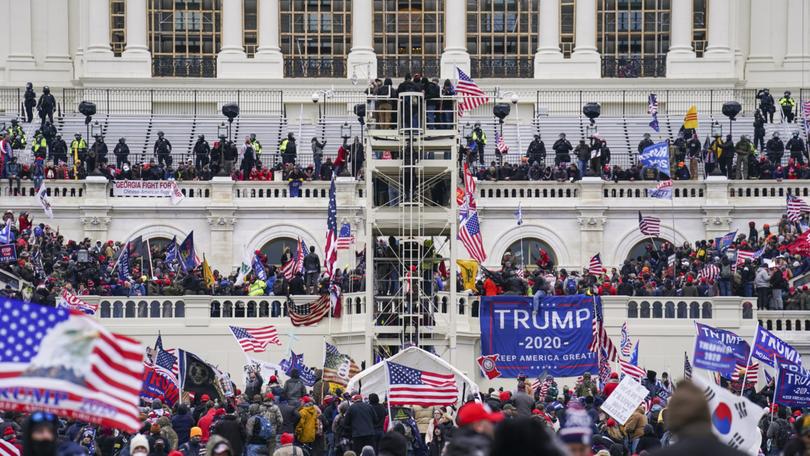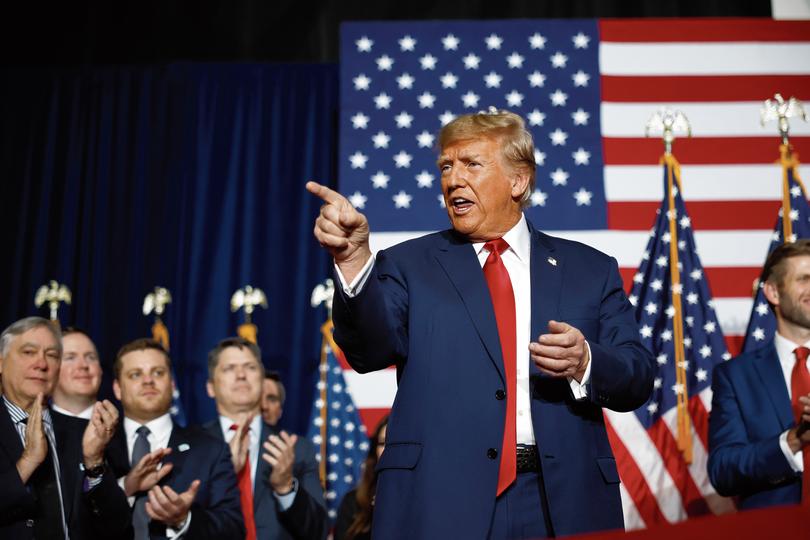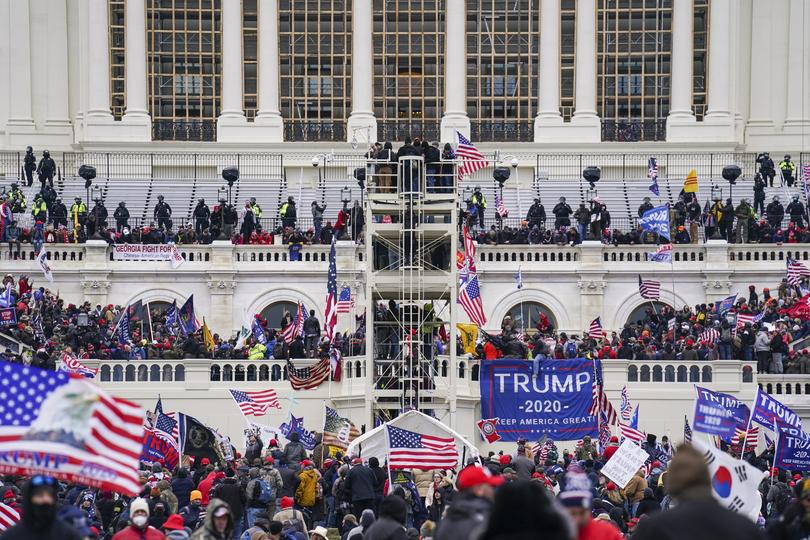The Economist: Is America dictator-proof? The many vulnerabilities, and enduring strengths, the republic
Feckless war-making, a financial crisis and institutional rot have loosed a ferocity in America’s politics that has given presidential contests seemingly existential stakes.

How has it come to this?
After victory in the Cold War, the American model seemed unassailable. A generation on, Americans themselves are losing confidence in it.
Feckless war-making, a financial crisis and institutional rot have let loose a ferocity in America’s politics that has given presidential contests seemingly existential stakes.
Sign up to The Nightly's newsletters.
Get the first look at the digital newspaper, curated daily stories and breaking headlines delivered to your inbox.
By continuing you agree to our Terms and Privacy Policy.Americans have heard their leaders denounce the integrity of their democracy. They have seen fellow citizens try to block the transfer of power from one administration to the next. They have good reason to wonder how much protection their system guarantees them against the authoritarian impulse rising around the world.
The answer is that, if Americans believe that their constitution alone can safeguard the republic from a Caesar on the Potomac, then they are too sanguine. Preserving democracy depends today, as it always has, on the courage and convictions of countless people all across America—especially those charged with writing and upholding its laws.
As our briefing explains, the constitutional order is vulnerable. A would-be dictator could start off without flouting the letter of the constitution, because later laws have created loopholes big enough for troops to march through.
As a young country, America was worried not only about a home-grown despot but also about powerful foes, having just defeated one. Congresses granted the president emergency powers to keep order in times of crisis.
Under the Insurrection Act, a president can deploy the army or navy against a domestic uprising or when federal law is ignored. Presidents have invoked this authority 30 times, to break strikes, overcome segregation and, most recently, to stop riots in Los Angeles in 1992.
The Brennan Centre, a think-tank, lists 135 extraordinary powers a president can claim by calling a national emergency — some of the most serious freeze bank accounts and shut down the internet. The president can decide what counts as an emergency. Over 40 remain in force, some years old.
Donald Trump invoked one to fund his border wall; Joe Biden, to forgive student loans. Congress is supposed to consider terminating emergencies every six months. It never has. Neither has it removed a president through impeachment.
That makes complacency a danger. And yet so is alarmism, because an emergency, real or confected, is the strongman’s ally.

When they believed the American project was at stake, even great presidents asserted extra-constitutional powers. During the Civil War Abraham Lincoln suspended habeas corpus; Franklin Roosevelt interned Americans without trial.
Among the biggest constitutional obstacles to dictatorship is the 22nd Amendment, which limits a president to two terms. But what would happen if an iron-willed autocrat stacked the Pentagon with lackeys and, with an army at his shoulder, refused to go?
The United States has 247 years of history, but its constitution was copied by several young Latin American republics in the 19th century and they succumbed to strongmen.
The lesson is that what sustains the American project, as with any democracy, is not black-letter laws but the values of citizens, judges and public servants. And the good news is that even the most determined, inventive and organised of would-be despots would struggle to overcome them.
The army remains among America’s healthiest institutions, its ranks filled with people mindful of their oaths to the constitution
States have wealth and tremendous authority over their own affairs. The vast majority of police officers work for state and local officials, not the president.
The press has become more partisan, but it also prizes its independence, and it remains too diffuse for any one party to control.
The next president may increase his power to fire tens of thousands of civil servants, but that would still leave a “deep state” of close to three million workers spread across hundreds of agencies and 15 departments. These people could cause a lot of trouble.
Americans rightly lament the erosion of norms, yet the abuse of executive power has sometimes led to new ones.
After Richard Nixon resigned over Watergate, the Justice Department began to take decisions about investigation and prosecution without regard to a president’s wishes.
Mr Trump has said he would do away with all that, yet any would-be Caesar who invoked emergency powers or the Insurrection Act would still have to overcome the independence of the courts. A lawbreaker would also have to reckon with the resistance of professional prosecutors and the integrity of juries.
Each candidate for president this year has accused the other of trying to destroy American democracy. But Mr Biden is an institutionalist, with reverence for the old ways of politics. Mr Trump, who has mused about being a dictator, if only for a day, is different.

His refusal to concede in 2020 led to the attack on the Capitol on January 6, 2021, and it prompted a record number of lawmakers to oppose certifying the vote.
Now Mr Trump’s suggestion that he may reject another loss has raised the risk that congressional Republicans try to block certification.
For their part, some Democratic representatives have suggested they might not certify a Trump victory, believing that he disqualified himself from the presidency by taking part in an insurrection. Thus can one president’s disregard for a norm erode the pillars of the system as a whole.
Mr Trump is surely unequal to the task of turning himself into a dictator, even if he wanted to. He is too easily distracted, scatterbrained and anxious to evade responsibility.
The greater danger is that his contempt for norms and institutions further diminishes Americans’ faith in their government. That matters, because the American project depends on its people.
Barely a quarter of them say they are satisfied with democracy.
They have voted for change time after time, but still their politicians fail to meet their needs.
“A republic, if you can keep it,” Benjamin Franklin is said to have declared when he was asked, on leaving the Constitutional Convention, whether the founders had created a monarchy or a republic.
As an election beckons, it is fair for ordinary Americans to turn Franklin’s challenge back on the many state and federal politicians who lead their republic: can they keep it?
This article was first published by The Economist.
